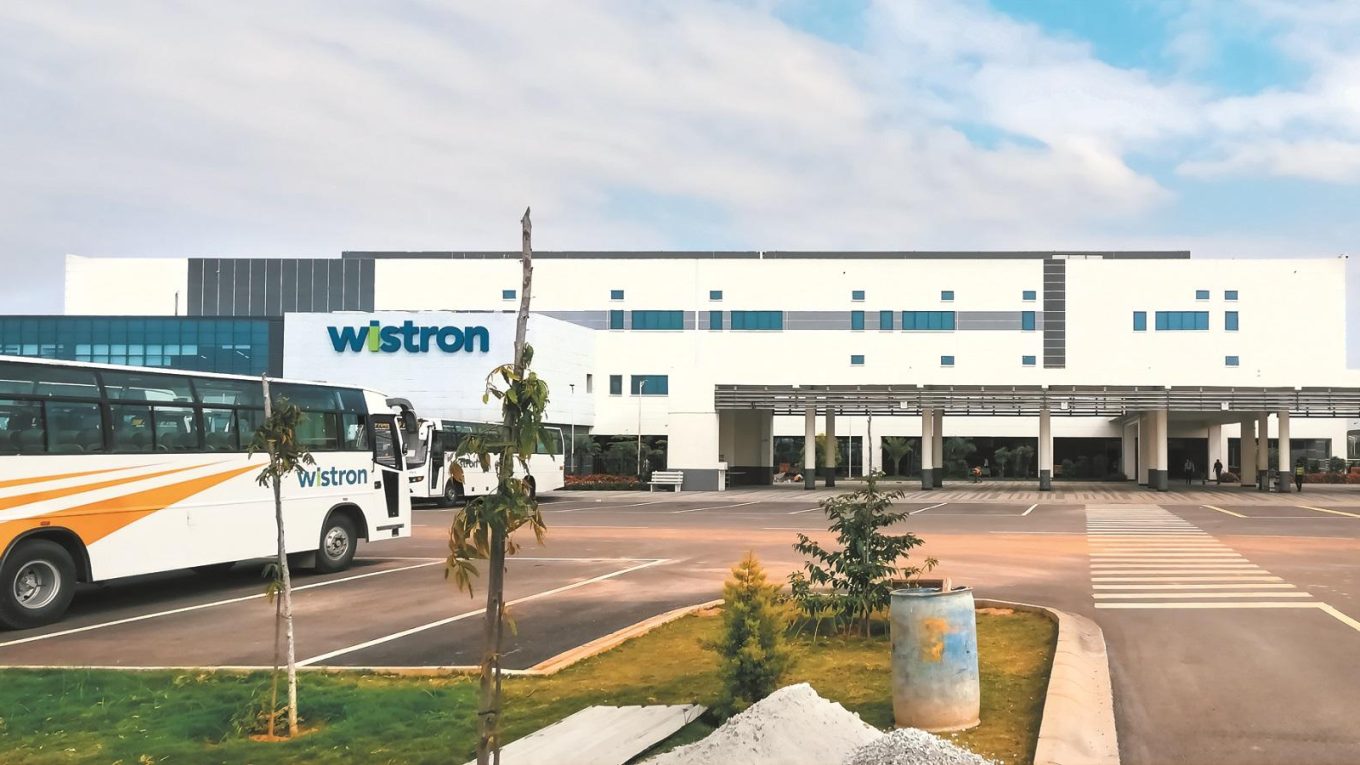iPhones assembled by Tatas to be a reality as Wistron clears plant sale
Tata Electronics is set to acquire 100 per cent of Wistron Corporation’s indirectly held stake in its Indian venture for $125 million — a deal that will catapult the Tatas into a globally exclusive club of iPhone assemblers. The agreement will enable Tata Electronics to emerge as the country’s first homegrown iPhone maker.
The board of Wistron Corporation, the world’s third-largest electronics manufacturing services (EMS) player, on Friday approved a proposal by its two subsidiaries, which jointly own the Taiwanese firm’s India venture — Wistron InfoComm Manufacturing (India) Pvt Ltd — to sell it to Tata Electronics via a share purchase agreement. The India venture operates the iPhone manufacturing plant in Narasapura, near Bengaluru.
At the same time, however, SMS InfoComm (Singapore) Pte Ltd, one of the two subsidiaries of Wistron Corp, has announced a proposal to convert a loan of $130.26 million (including accrued interest) that it extended to the Indian venture into equity.
While the conversion price is not known, according to sources, this potentially could mean that Wistron may continue to have a minority stake in the Indian unit.
Following the deal, Tata Electronics would become the first Indian company to join Apple Inc’s exclusive list of currently four global vendors that assemble the iPhone. Besides Wistron, Taiwanese players Foxconn and Pegatron, and Chinese company Luxshare are on the list.
The importance of the agreement could be gauged from the fact that 7 per cent of iPhone’s global production has already shifted to India from China, and the target is to hit around 18-20 per cent by FY26.
Commenting on the development, Union Electronics and IT Minister Ashwani Vaishnaw said: “It is another major step in mobile manufacturing. With this acquisition, mobile manufacturing will be further strengthened in the country.” The Tatas declined to comment.
Wistron has been one of the key players in assembling iPhones in the country in Karnataka, apart from Foxconn and Pegatron, and is eligible for incentives under the production-linked incentive scheme for mobile devices. It has been manufacturing the iPhone 14 in the country. According to data from S&P Global Intelligence, Wistron was the second-largest exporter of iPhones from India, after Foxconn, notching up $1.98 billion in revenue in FY 23 against $0.71 billion in FY22; it accounted for 36 per cent of iPhone exports from the country. The sources said over 90 per cent of Wistron’s production in India was exported.
The company, according to the sources, has already invested Rs 1,250 crore in setting up the plant and employs more than 12,000 workers – a figure that it was planning to triple. However, it faced labour issues in the plant with workers protesting allegedly unpaid wages and long working hours.
The Tatas are not new in the business with Apple, and have a clear strategy to become a major player in the electronics and semiconductor space. They have been an important partner of the Cupertino-headquartered company, which is looking at building a local supply chain so that it can increase value addition in iPhones, something which it had committed would be at 40 per cent at the end of the five-year PLI scheme. Currently, the local value addition ranges from 12-15 per cent, according to the sources.
Apple had tied up with Tata Electronics to supply it iPhone enclosures, which account for 9-12 per cent of the total cost of production. After a learning curve of two-three years to cut rejection rates, the Tatas are now exporting the India-made enclosures to Chinese assemblers of the iPhone. The Wistron deal will again it an opportunity to become a global EMS player.
The Tatas have also announced that they are interested in semiconductor opportunities, including fabs, but have not given details of their plans.
2020: Pulls out from China and Vietnam; sells iPhone-making factories to Luxshare
2021: Emerges as an eligible player for production-linked incentives. Last year, it even assembled iPhone 11, 13 and 14
2022: Starts negotiations with the Tatas to sell the Karnataka factory
2023: Board of Wistron clears the plant’s sale to the Tatas
